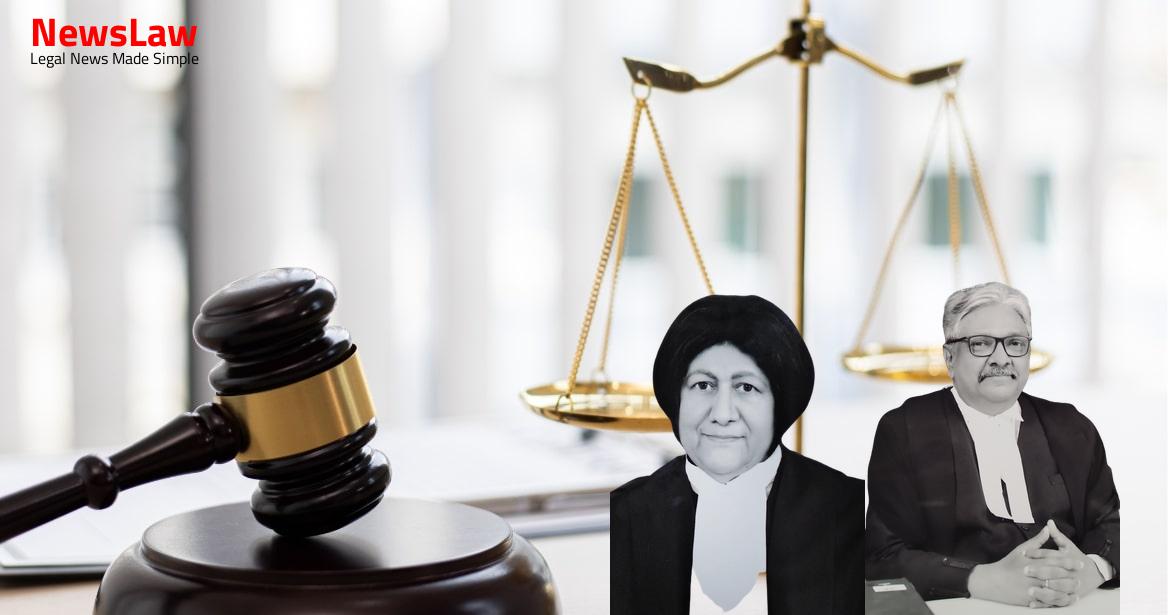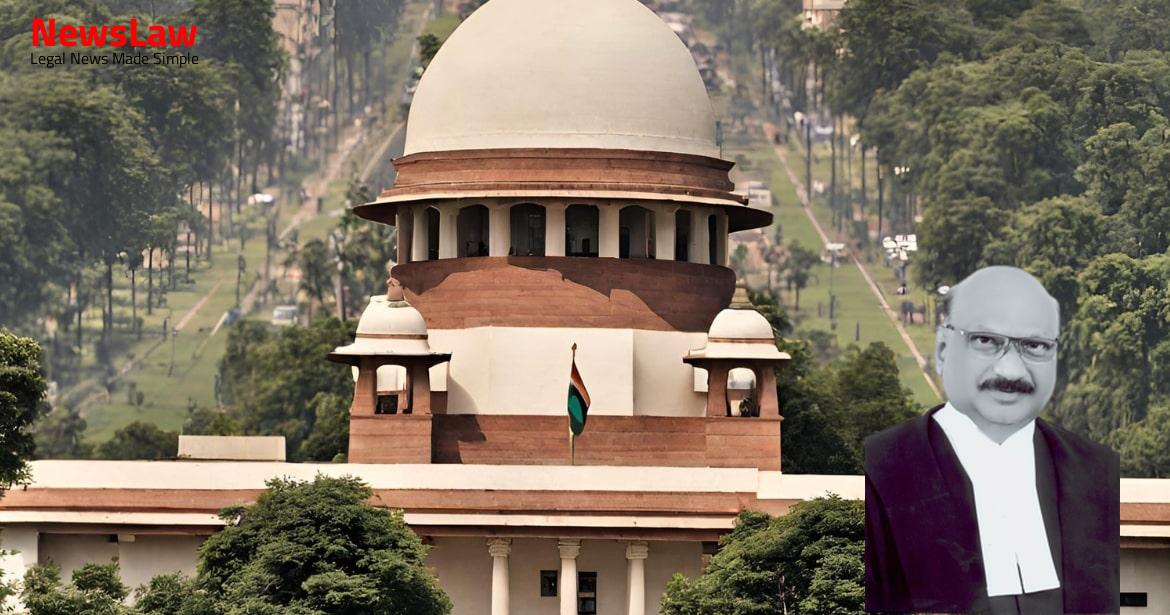A recent legal case delves into allegations of electoral malpractices during the Mayor election. The court’s meticulous legal analysis highlights discrepancies in the voting process and raises concerns about the integrity of the democratic process. Stay informed about this critical issue that underscores the importance of upholding fair elections.
Facts
- Appellant polled twelve votes, eighth respondent polled sixteen votes in election for the post of Mayor.
- Video recording of the counting process was played in open court on 5 February 2024.
- Entire record of the election was produced before the Court in sealed custody by OSD of High Court.
- Appellant approached Court alleging electoral malpractices.
- Appellant submitted requests for acknowledgment of withdrawal of candidature, observing election proceedings, and video recording of the process.
- Respondents assured video recording of the entire voting and election process.
- Election process, including the counting of votes, was video recorded as directed by the High Court.
- Writ petition in High Court alleged electoral malpractices by the presiding officer during the election for Mayor.
- Deputy Commissioner of Chandigarh acted as Presiding Authority for the election.
- Presiding Officer declared result in favor of eighth respondent.
- Appellant was a candidate fielded by an alliance between Aam Aadmi Party and Indian National Congress, eighth respondent was set up by Bharatiya Janta Party.
- Thirty-six eligible voters for the election, result announced on 30 January 2024.
- Issue of alleged electoral malpractices during vote counting led to the writ petition before the High Court.
- The High Court held that there was no valid ground for the postponement of the elections.
- The High Court directed that the elections for the posts of Mayor, Senior Deputy Mayor, and Deputy Mayor be conducted at 10 am on 30 January 2024.
- A Division Bench of the High Court declined to stay the election result and scheduled the petition to be heard after three weeks.
- The order postponing the elections to 6 February 2024 was challenged before the High Court, which issued notice and listed the petition after three weeks without granting any interim relief.
- Due to the absence of the presiding officer and purported ‘law and order’ situation, the elections scheduled for 18 January 2024 did not take place.
- Fresh litigation arose before the High Court as a result.
- Chandigarh police were tasked with ensuring free and fair elections.
- On 17 January 2024, a day before the proposed election, a Division Bench disposed of the petition.
- The High Court on 23 January 2024 deemed the postponement of elections for eighteen days as unreasonable.
Also Read: Balancing Power and Transparency: Electoral Bonds Struck Down, Disclosure Mandated
Arguments
- The appellant’s grievance is based on the video footage showing the Presiding Officer placing ink marks on eight ballot papers cast in favor of the appellant
- These votes were treated as invalid solely due to the marks made by the Presiding Officer
- Allegations suggest a deliberate attempt by the Presiding Officer to invalidate votes cast for the appellant and favor the eighth respondent
- This alleged misconduct is argued to have seriously impaired the democratic process of electing the Mayor of the Chandigarh Municipal Corporation
- The eighth respondent has tendered his resignation during the proceedings.
- A fresh election would need to be held in accordance with Section 38(3) of the Act.
- Regulation 6(9) states the voting procedure for members, involving placing a cross (X) next to the candidate’s name and placing the ballot in the box.
- Certain ballots were considered invalid due to marks made by the Presiding Officer, apart from initialing the ballots.
- The relief sought in the writ petition before the High Court is to set aside the election result and conduct a fresh election.
Also Read: Recall of Resolution Plan Approval: Legal Analysis
Analysis
- Section 60(a) of the Act states that the meeting for the election of the Mayor must be convened by the Divisional Commissioner.
- The Divisional Commissioner must nominate a councillor who is not a candidate to preside over the meeting.
- Regulation 6(1) of the Chandigarh Municipal Corporation Regulations specifies that the prescribed authority must convene the meeting for the election of the Mayor.
- The prescribed authority must nominate a Councillor who is not a candidate to preside over the meeting.
- According to Regulation 6(9), a councillor can only vote for one candidate during the election.
- The Presiding Officer signed each of the ballot papers and placed his own mark on the bottom half to invalidate them.
- The video footage suggests additional marks were placed on some ballot papers by the Presiding Officer.
- All eight invalidated ballot papers had votes in favor of the appellant.
- The dispute revolves around the eight invalidated ballots which had both the appellant and eighth respondent’s names.
- Regulation 6(10) outlines three eventualities for invalid ballots, including doubtful votes and voting for multiple candidates.
- The Presiding Officer claimed he invalidated the ballots due to defacement.
- Regulation 6(11) mandates the Presiding Officer to initial each ballot after casting.
- Both signatures of the Presiding Officer are present on each ballot paper.
- The ballot papers were examined by the Court and the respective counsels.
- Regulations for municipal elections have been framed by the Municipal Corporation under Section 65 of the Act in Chandigarh.
- Clause (10) of Regulation 6 outlines three scenarios where a ballot can be deemed invalid.
- The scenarios include voting for more than one candidate, placing marks for identification, and creating doubt about the intended candidate.
- The Presiding Officer’s actions in this case exceeded the authority granted by the regulations.
Decision
- The writ petition before the High Court shall stand disposed of in terms of the directions given.
- The Civil Appeal is listed on 15 March 2024 to consider the response of the seventh respondent to the notice directed to be issued to him.
- In order to maintain the purity of the electoral process, only the ‘little man’ should make the ‘little cross’ on the ballot paper in the voting booth.
Case Title: KULDEEP KUMAR Vs. U.T. CHANDIGARH (2024 INSC 129)
Case Number: C.A. No.-002874-002874 / 2024



